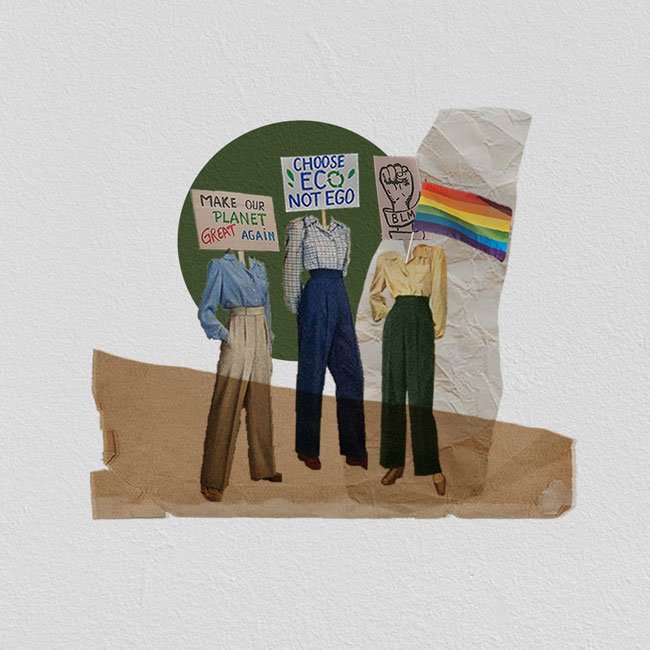For many of us, the word ‘’activism’’ brings to mind actions aimed at social changes, carried out with collective structuring, involving political elements and often trumpeted through the public. However, activism encompasses all actions aimed at fundamental change and transformation. Although this change and transformation seem to be valid on a social scale in general, it is impossible not to see the reflections of these changes in the lives of individuals, since every social and political field exists for the individual and directly affects the lives of each human being. This dynamic between society and the individual causes every decision we make in our personal space to have a response in a wider area. That’s why hundreds of choices that we make in our daily life, consciously or unintentionally, arising from our identity, view of life and experiences, have a transformative effect on our environment. At this point, it is also possible to incorporate our activism into our lives in an individual and relatively quiet way, away from a strategy or organization, for the changes we need and sometimes demand by walking on the streets together.

This is a form of activism that ‘’ordinary people’’ create in their daily lives by living according to their own truths and making decisions based on these truths.
Also, we become a part of this daily activism every moment we exist within the stereotypes, defined borders and order created and imposed by society, with our actions and value judgments that can go beyond these limits. From the food on our plate to the clothes we wear, from the relationships we establish to our daily routine activities, we recreate activism with every action and thought that we question the truth and normality taught to us, see the mistakes of the ongoing order, or go beyond the limits defined for us. Not only do we go beyond our own boundaries and transform our own norms, but we also inspire, raise question marks and start a butterfly effect for many who witness our choices at home, on the street, in the office and even on social media.
Many of our choices become symbols as we become part of everyday activism. We create symbols that express our identities and truths in many parts of our lives, from the mesh bags we keep with us while shopping, to our colourful hair that we do not give up when entering professional life, from the language we choose to use in the community to the division of labour we do with our partners in housework, and we relate to our surroundings through these. Out of these symbols, we use the most frequently, the most obvious and the most variable is our clothes. As the clothes we choose, whether to wear them or not, contain many of our unique features, they can sometimes become tools through which we reflect our identities and values and truths.
Not only what we wear, but also all our decisions in the practice of dressing, such as purchase, frequency of use, and the style of usage, represent the potential of everyday choices to have a transformative effect.
Through these decisions, it is possible to become a link in the chain of change that we want to convey and see our values and experiences, such as the liberating relationship we establish with our body, the parts of our identity that overflow from the norms, or the sense of responsibility we feel for our environment. We define and celebrate this transformative and border-widening effect of clothing for individuals as everyday activism. Also, we try to keep this activism alive and take steps that do not hesitate to disturb the rhythm of the ongoing habits and question the order throughout the journey from the first moment a piece started to be produced. We envision a future in which clothes, which are an undeniable part of our lives, can be produced with compassion and without harm, purchased consciously, and where they play a liberating and constructive role rather than destructive and restrictive in the relationship we establish with our bodies.

Leave a Reply
You must be logged in to post a comment.